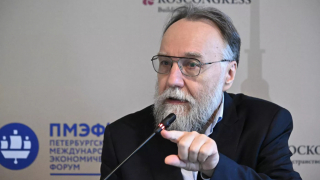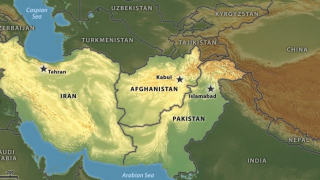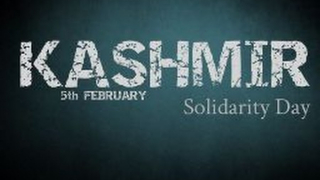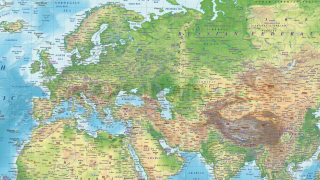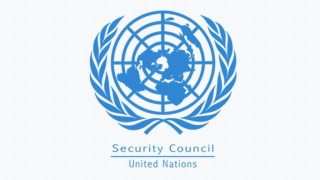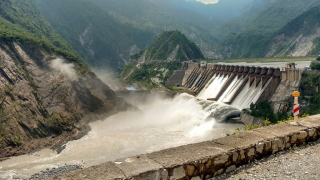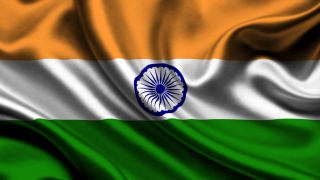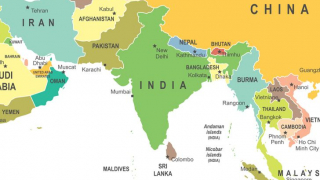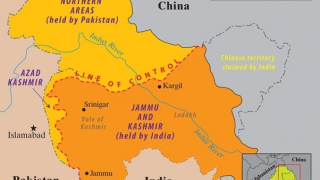The Abuse of Power in Indian Occupied Kashmir calls upon the world conscience
30.06.2020
The predicament attached with COVID-19 that resulted in lock down around the world is not new to the people of Indian occupied Jammu and Kashmir (IOJK) as they have been. The “security lockdown” and communications blackout has been imposed on Kashmir since August 5, 2019 following revocation of the special status of Jammu and Kashmir via scrapping of the Article 370 and Article35A of the constitution of India and the introduction of Jammu and Kashmir Registration Act, 2019. Media persons are not allowed to present the right picture of the gross violations of human rights in their newspapers. It is noteworthy that since 5 August, no foreign journalists have been granted permission from the Indian Government to report in Kashmir whereas massive human rights violations have been recorded during the time. These abuses range from communication blockade, mass killings, enforced disappearances, torture, rape, and sexual abuse to political repression, suppression of freedom of speech and usurping of the rights of locals through illegal settlements. India has turned IOJK into a prison where no access has been granted to the outer world. On 4 October 2019, the Indian government denied US Senator Chris Van Hollen's request to travel to Kashmir. Meanwhile, Sandeep Pandey, an education reformer, and other activists who were on an informal fact-finding mission were also barred from leaving the airport in Srinagar.
Pakistan has urged the Muslim world to adopt a united stance on the long-standing issues of Palestine and Kashmir as the country has a longstanding principle stance on these issues in the light of human rights violations for many decades. Although Corona virus has restricted academic activities in terms of large-scale gathering yet virtual programmes are being carried out which is a good sign. In this connection, an international webinar, organized by Islamabad-based think tank Institute of Policy Studies (IPS) was an enlightening session, which was attended by a large number of speakers. While addressing the webinar Pakistan’s Minister for Human Rights Shireen Mazari has rightly urged the Muslim world to shed its dependence on the West and adopt a united stance on critical issues like Kashmir and Palestine in order to emerge as a respected global force. As actions speaks louder than words let us be optimistic and hope that now her ministry would take the needful measures to adopt a mechanism to engage Muslim countries in constructive manner for the cause Kashmir and Palestine.
Recently, some vocal statements had come from the Arab countries on social and conventional media regarding the treatment of Muslims in India and the Kashmir issue, which was a good sign.
The webinar, organized by (IPS) in Islamabad, was also attended by British House of Lords Member Lord Nazir Ahmed, British MP Khalid Mehmood, Member of Turkish Prime Minister’s Advisory Board for Human Rights Dr Hamit Ersoy, Vice President to Egyptian National Constitutional Committee Dr. Kamal Helbawi, Istanbul University professor Dr. Halil Tokar, and Qatar University professor Farhan Mujahid Chak. It was a meaningful and informative discourse where the speakers gave many recommendations to reduce the poor plight of innocent Palestinians and Kashmiris through viable solutions. It is a great responsibility of the different forums of Muslims and organizations working for the human rights to highlight the points discussed in the webinar as a noble cause.
In his remarks, Lord Ahmed opined that India was no longer a secular country. Its political system was controlled by the Hindutva extremist ideology "that does not provide equal opportunities to its minorities”. He appreciated the Arab countries for "beginning to see the true extremist Indian reality, which was hidden under the facade of secular democracy for a long time." British MP Mehmood called upon the Kashmiris to shed their mutual differences to put greater pressure on world powers. He said the Indian government had been brazen-facedly violating the Geneva Convention and urged Muslim countries to take the issue to the International Criminal Court (ICC). Mehmood also urged the Organization of Islamic Cooperation (OIC) to consider putting economic sanctions on India for violating human rights of Muslims and Kashmiris. Turkish professor Ersoy highlighted the fact that India, the US and Israel were jointly working against the Muslim world and deliberately painting Muslim freedom struggles against foreign occupation as terrorism. He pointed out that 76% of all hate crimes in India are committed against Muslims.
Kashmir is a pig-headed conflict between the two South Asian countries Pakistan and India. Every individual suffered here in this vale of paradise which was known as the beautiful region across the globe. But its irony is that due to unrest, turmoil, and cycle of violence, people lost their kiths and kens; and because of all that, the people of IOJK suffered a lot. This valley has seen plenty of untold stories of massive violations of human rights committed by Indian army, intelligence agencies, and police. It has not only affected the local residents but also badly affected the people of either side as the large chunk budgets is spent on defense than on development. Kashmiris even are not feeling safe in other parts of India, they are being terrorized and killed in other parts of India. Muslims must stand united at least for the cause of human rights shunning aside the political differences.
Kashmiri even are not feeling safe in other parts of India, they are being terrorized and killed in other parts of India. India has always abused her power in Kashmir. This all was done on the basis of bayonet and misuse of power. Democracy is based on rule of law, justice, equality, and liberty. But it is quite ironic that these features of democracy are absent in Indian Occupied Jammu and Kashmir for which the BJP led government in India must be questioned. India has always abused her power in Kashmir, which calls upon the world conscience for the regional peace, prosperity, and stability.


